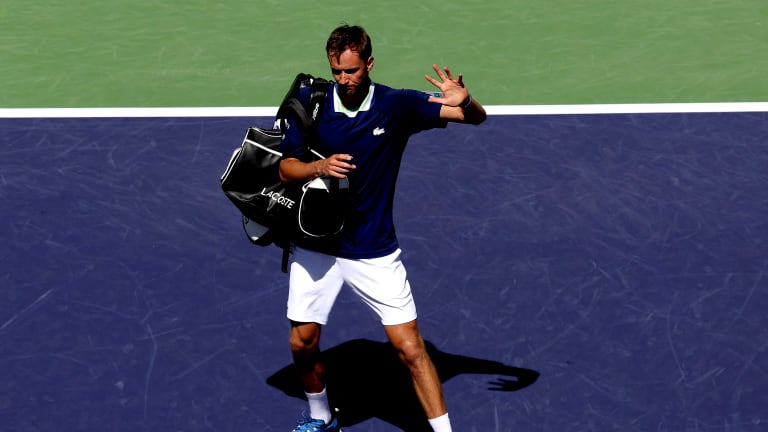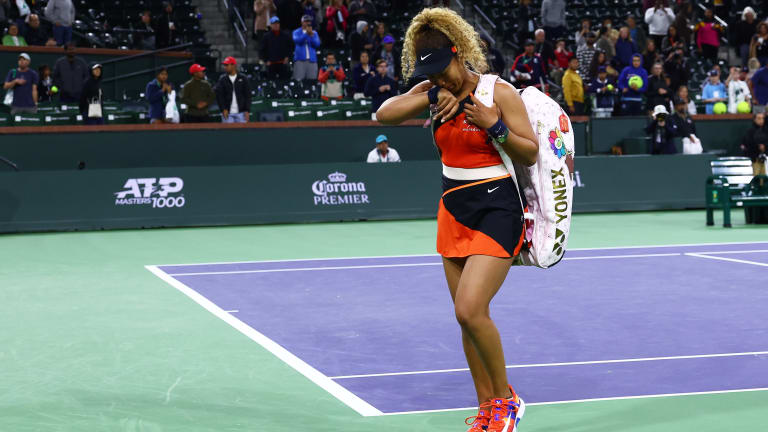Indian Wells, USA
The Rally: On the plights of Daniil Medvedev and Naomi Osaka, life without the Big Five, and tennis’ place in the wider world
By Mar 16, 2022Indian Wells, USA
Mackenzie McDonald is paying the college tennis experience forward with a new fund
By Mar 17, 2025Indian Wells, USA
Mirra Andreeva and Jack Draper win breakthrough titles at Indian Wells: What did we just witness?
By Mar 17, 2025Indian Wells, USA
Jack Draper's run through Indian Wells concludes with his first ATP Masters 1000 title
By Mar 16, 2025Indian Wells, USA
Holger Rune vs. Jack Draper: Where to Watch, Indian Wells Preview, Betting Odds
By Mar 16, 2025Indian Wells, USA
Holger Rune reaches first Indian Wells final over Daniil Medvedev
By Mar 15, 2025Indian Wells, USA
Mirra Andreeva vs. Aryna Sabalenka: Where to Watch, Indian Wells Preview, Betting Odds
By Mar 15, 2025Indian Wells, USA
Mirra Andreeva, 17, advances to Indian Wells final, beating Iga Swiatek in chilly conditions
By Mar 15, 2025Indian Wells, USA
Ruthless Aryna Sabalenka storms past Madison Keys, 6-0, 6-1, in semifinals of Indian Wells
By Mar 15, 2025Indian Wells, USA
Carlos Alcaraz vs. Jack Draper: Where to Watch, Indian Wells Preview, Betting Odds
By Mar 15, 2025The Rally: On the plights of Daniil Medvedev and Naomi Osaka, life without the Big Five, and tennis’ place in the wider world
In their latest back-and-forth, the authors discuss empathy, gratitude and Indian Wells.
Published Mar 16, 2022
Advertising
Advertising

Daniil Medvedev's reign at No. 1 was brief, and was overshadowed by his country's invasion of Ukraine.
© Getty Images
Advertising

In being heckled at Indian Wells, Naomi Osaka recalled what Serena Williams experienced at the tournament decades earlier.
© Getty Images
Advertising

The ATP Challenger Tour, by Sam Querrey
Everything you need to know about this must-see circuit.
Advertising

Download the Tennis.com app on your IOS or Android device today!